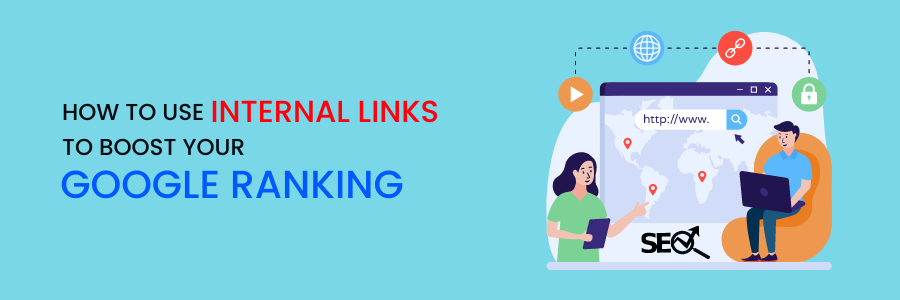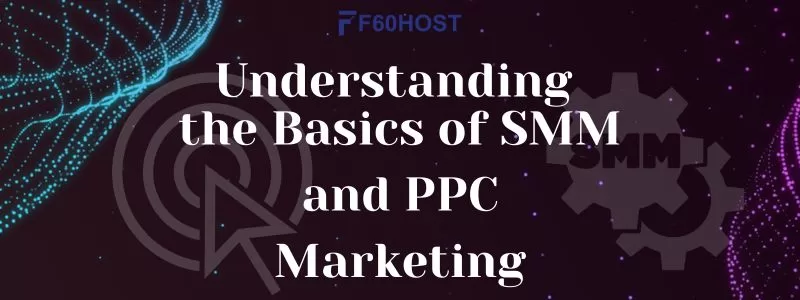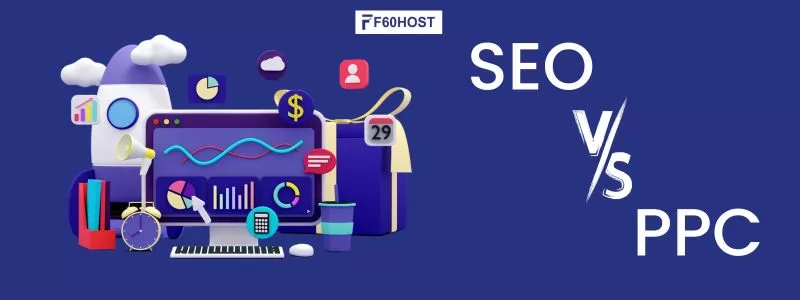How to Use Internal Links to Boost Your Google Ranking

Links are required for your content to rank. When your posts and pages are linked to elsewhere on the web, Google finds them more easily. Internal links connect your content and provide Google with information about the structure of your website.
They can help you create a site hierarchy, allowing you to give the most important pages and posts more link value than other, less important pages. Using the right internal linking strategy can therefore improve your SEO!
Internal Links to Boost Your Google Ranking
So, let’s start by learning everything there is to know about internal links. The following are the points covered in the Boost Your Google Ranking Through Internal Links simply put.
- What Are Internal Links?
- What Is the Significance of Internal Links in SEO?
- How to Start creating Internal Links?
1. What Are Internal Links?
Internal links are hyperlinks that connect to pages within a single domain. External links, which lead to pages on other domains, are not the same as internal links.
Internal links comes in such a variety of shapes and sizes. You can include links within your content in addition to your homepage, menu, and post feed. These are referred to as contextual links.
Contextual links direct your users to relevant and intriguing content. Furthermore, they enable search engines to estimate the worth of your site’s content by determining what content is associated to it.
2. What Is the Significance of Internal Links in SEO?
Internal linking is under your control as the webmaster. If you use the right internal links, you will direct your visitors and Google to your most important pages.
- Internal links assist Google in finding, indexing, and comprehending all of your site’s pages.
- Internal links can send page authority (also known as Page Rank) to significant pages if used wisely.
- In a conclusion, internal linking is essential for every website that wishes to rank higher in Google.
3. How to Start creating Internal Links?
It is critical for the SEO of your site to evaluate and improve your internal linking tactic on a regular basis. It is one method for improving the fitness of your website. By including the appropriate internal links, you ensure that Google understands:
- Use Internal Links To Help With Indexing
- Make Use of Keyword-Rich Anchor Text
- Link to Important Pages
- Analyze Internal Links Using Google Search Console
- Add Internal Links to Old Pages
Pro Tip: Don’t over Do It
Internal links are really useful. However, after a certain number of clicks (about 100), links on a page lose their value.
If 100 links seems excessive, keep in mind that this number covers both internal and external links.
There are several factors to consider when developing your internal linking strategy. Of course, how you go about it depends on your site and your goals, but the following steps are a good starting point.
1. Use Internal Links To Help With Indexing
Google usually finds and indexes all of a website’s important pages. However, if you have a LOT of pages (or a limited Crawl Budget), Google may only index a portion of your site’s pages. This is where internal links come in useful. Internal links help Google find pages on your website.
So, if you want to index a page or set of pages, create an internal link to that page or that page’s category from your site’s navigation. Directly from one page to another, and don’t forget to include a link from your sitemap to the page you want indexed.
2. Make Use of Keyword-Rich Anchor Text
In reality, you can get away with using exact match anchor text in your internal links. (Which is a big no-no when it comes to backlinks for your website.)
In fact, Google recommends using keywords in your anchor text. Google has stated that using a lot of exact match anchor text in internal links will not “typically” hurt you.
3. Link to Important Pages
When you link to another page on your site, you give that page link authority. (This may help that page rank higher in Google.) Internal links are not nearly as effective as links from other websites. They do, however, assist. That is why knowledgeable SEOs strategically link to important pages.
4. Analyze Internal Links Using Google Search Console
The Google Search Console’s “Links” feature is great. This feature can also be used to check how your site’s internal links are set up.
Internal link audits, in my opinion, should be undertaken 1-2 times per year. You’ll see that pages with low priority get a lot of internal linking attention.
5. Add Internal Links to Old Pages
This is something I propose as part of my quarterly SEO website audit. It’s also really useful. First, go to your website and find an old article from at least a year ago.
Next, make a list of all the pages you’ve published since the old article was initially published.
Finally, look for areas on the page where you may insert an internal link to a new page. With just a few minutes of work, you’ve created a number of useful internal links.
What have we learned from this article?
Your content won’t rank if it doesn’t have links! You can illustrate which content is related and which of your articles are the most useful and valuable with a robust internal linking strategy. If you follow the rules in this piece, Google and your users will have a better understanding of your site, increasing your chances of ranking.
If you are interested in learning from videos, I recommend this Ahrefs video.
If you are looking for an SEO Expert to help you rank your website, please contact us.



